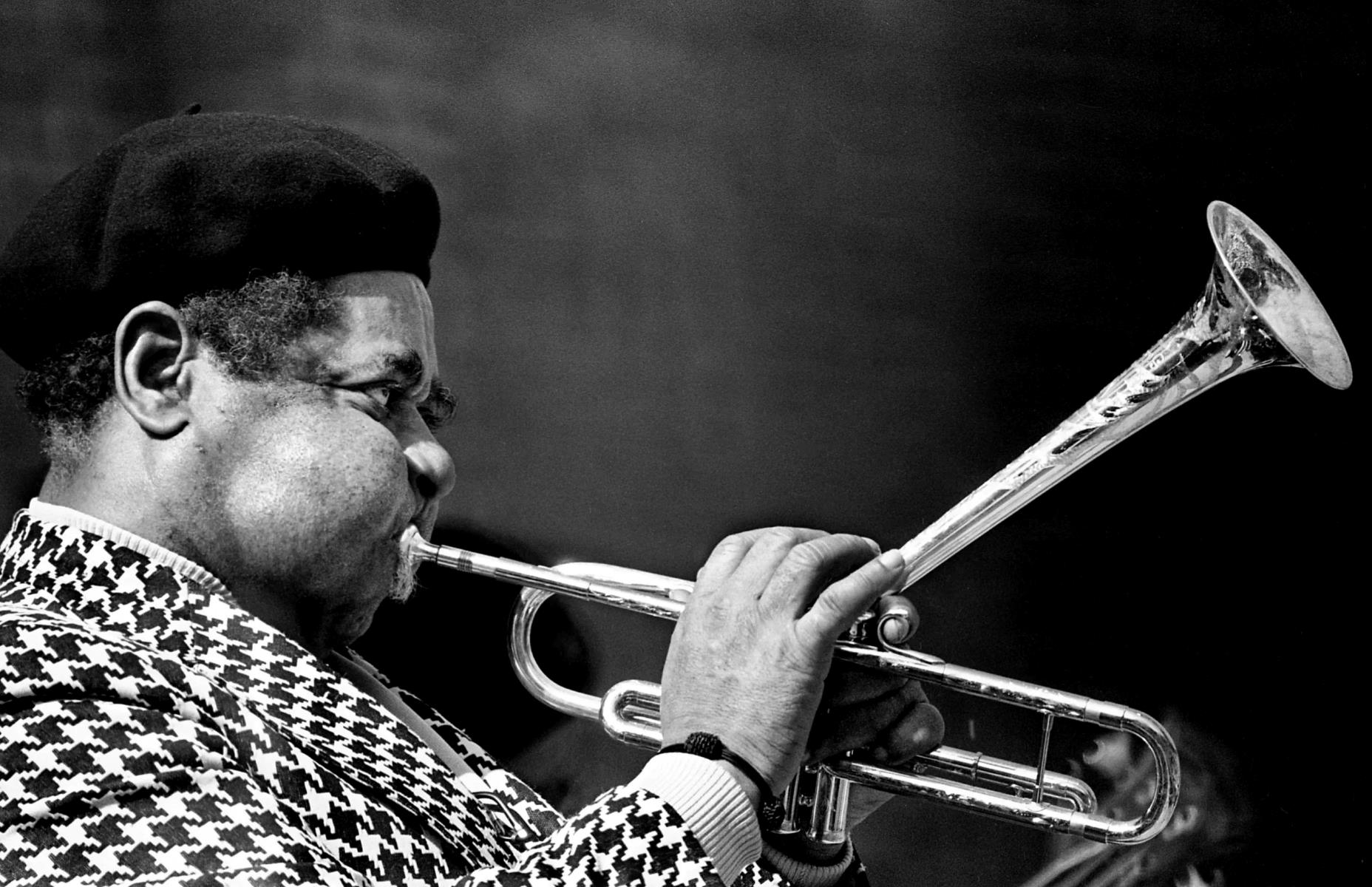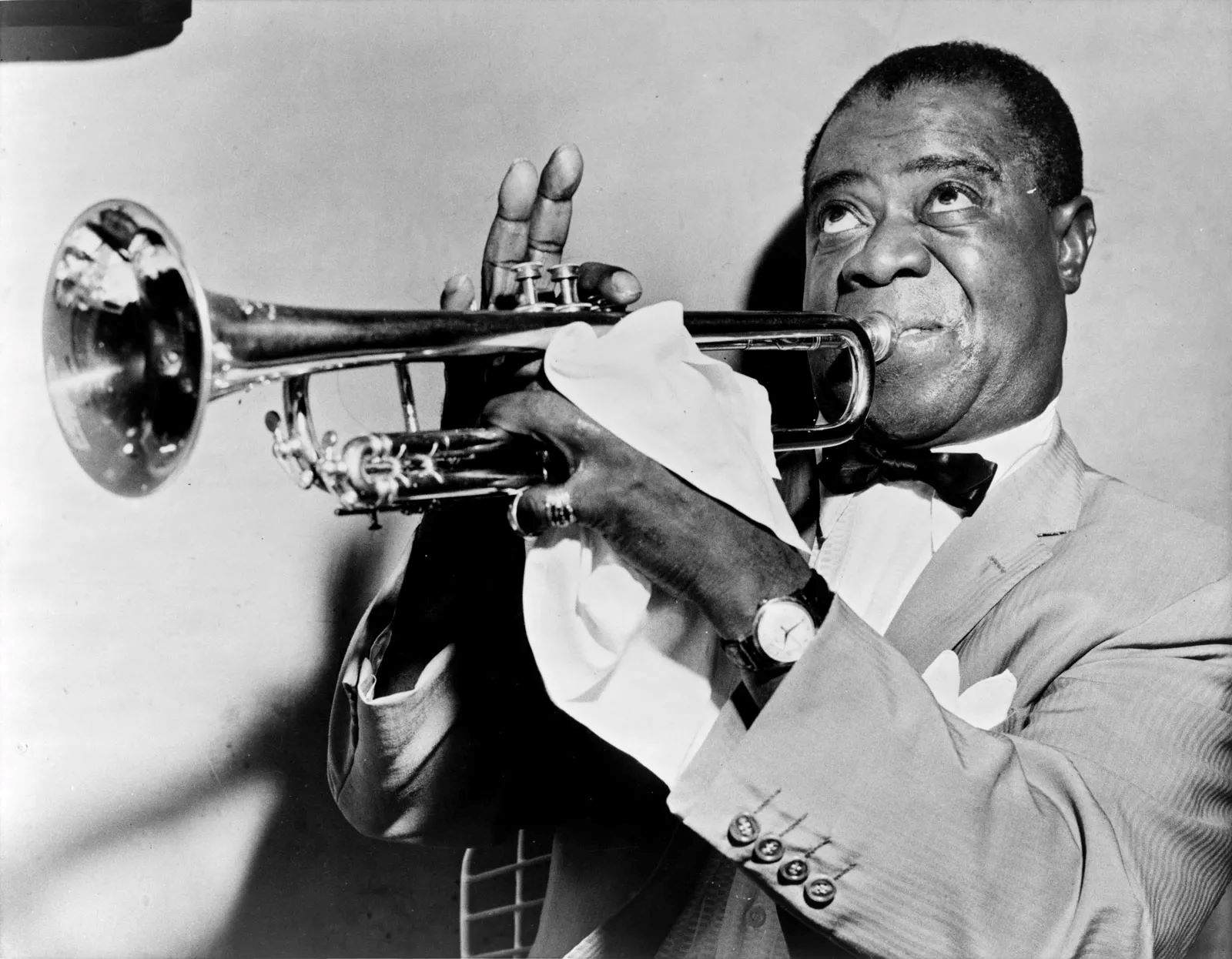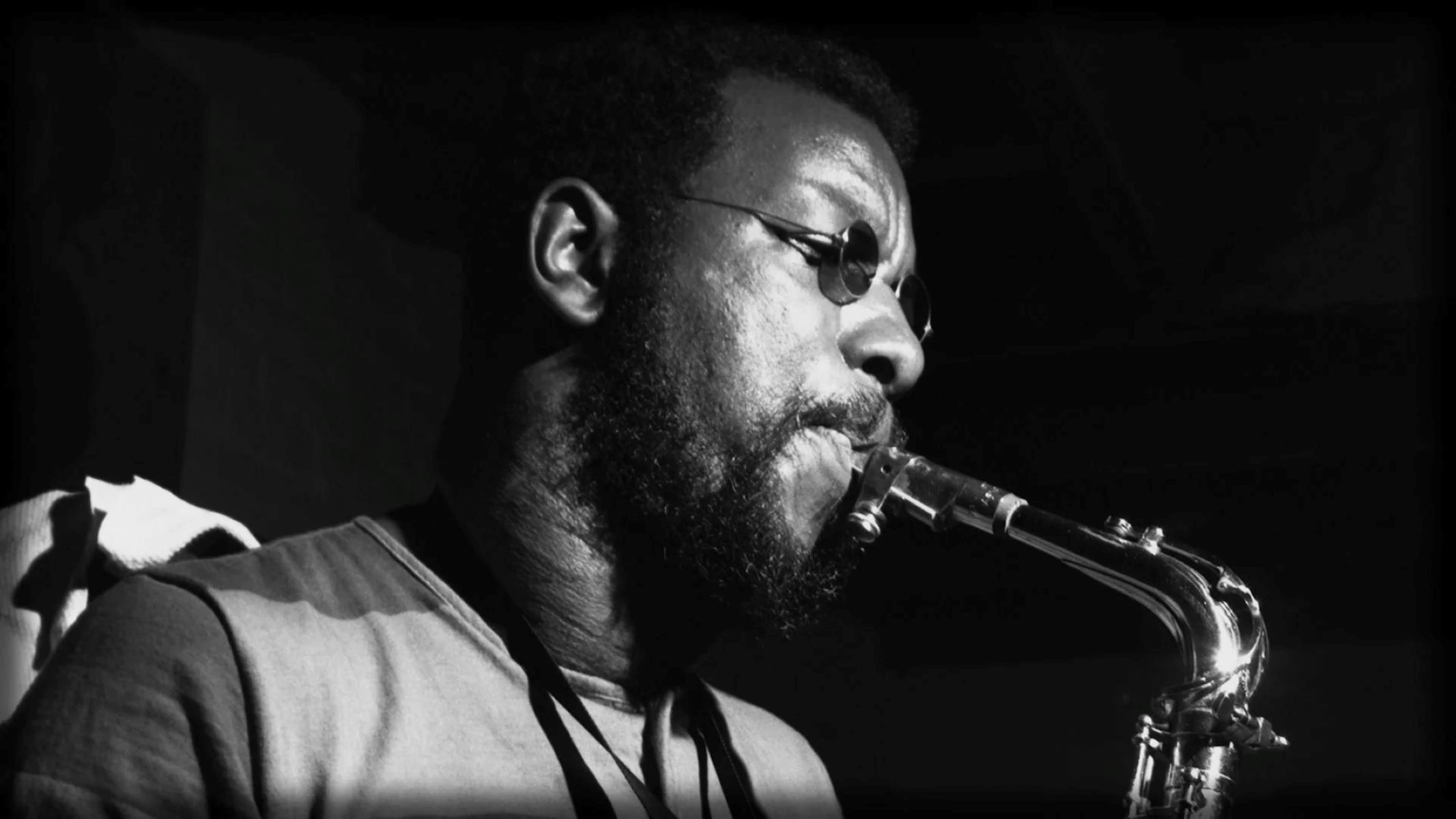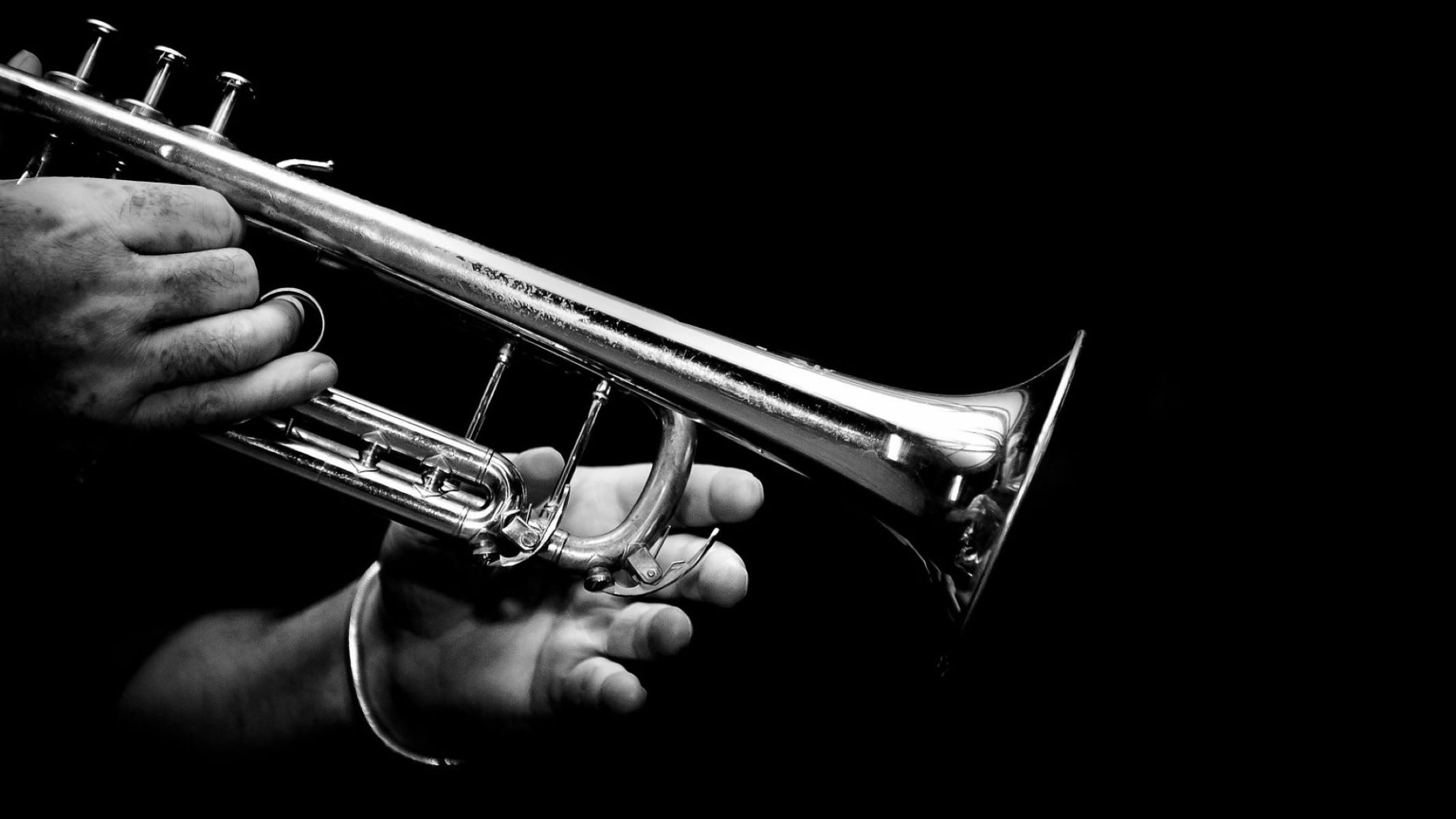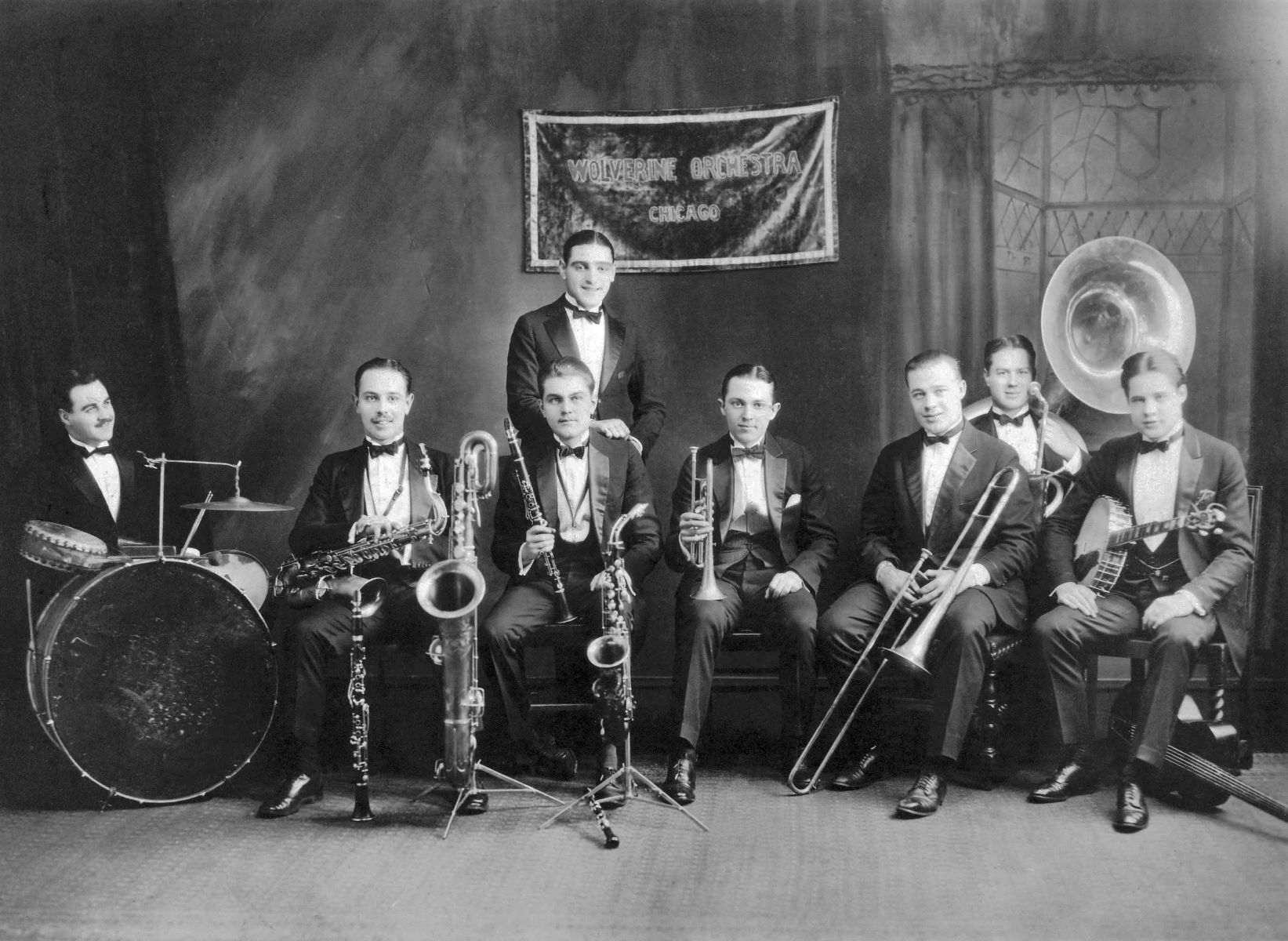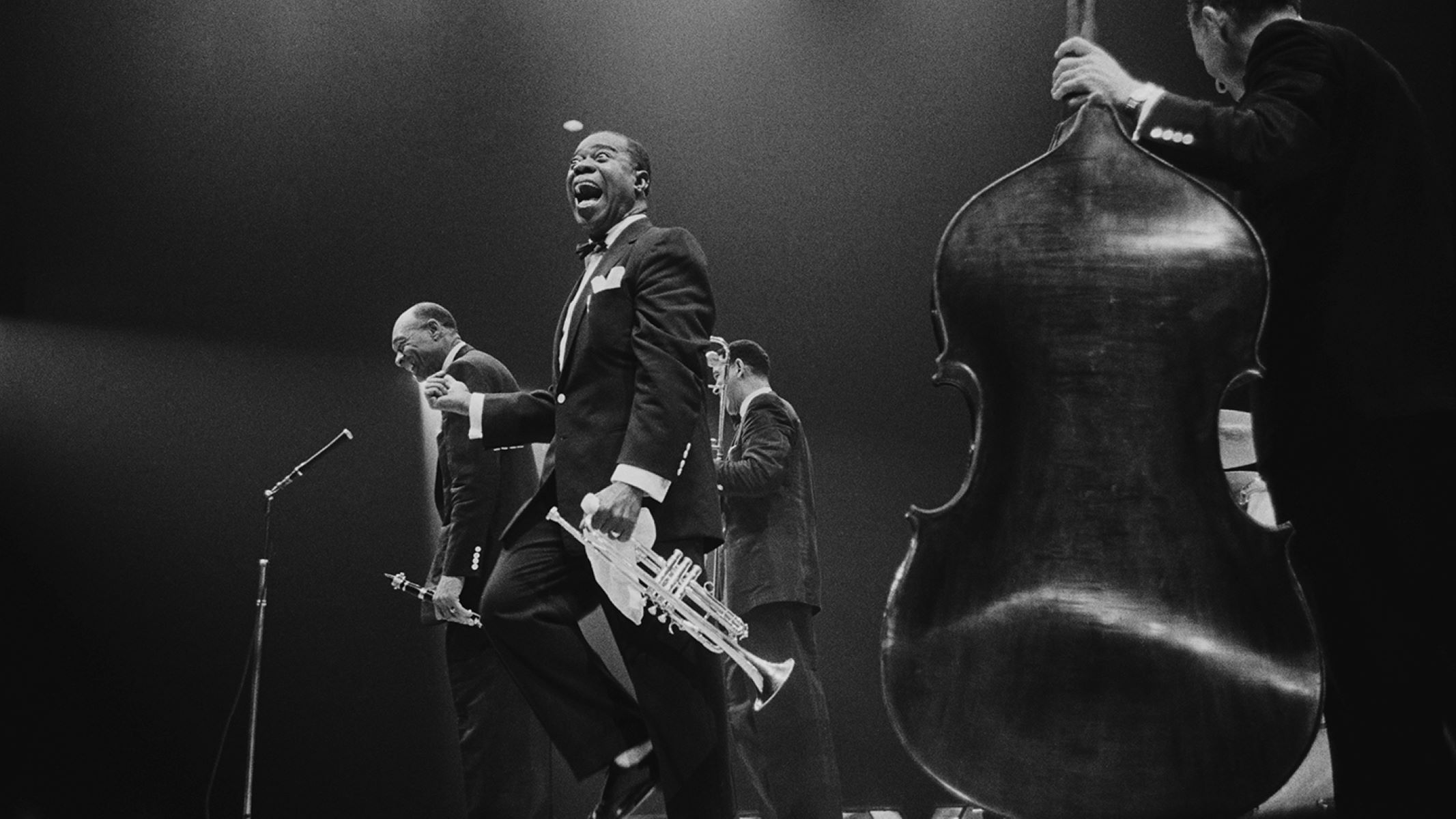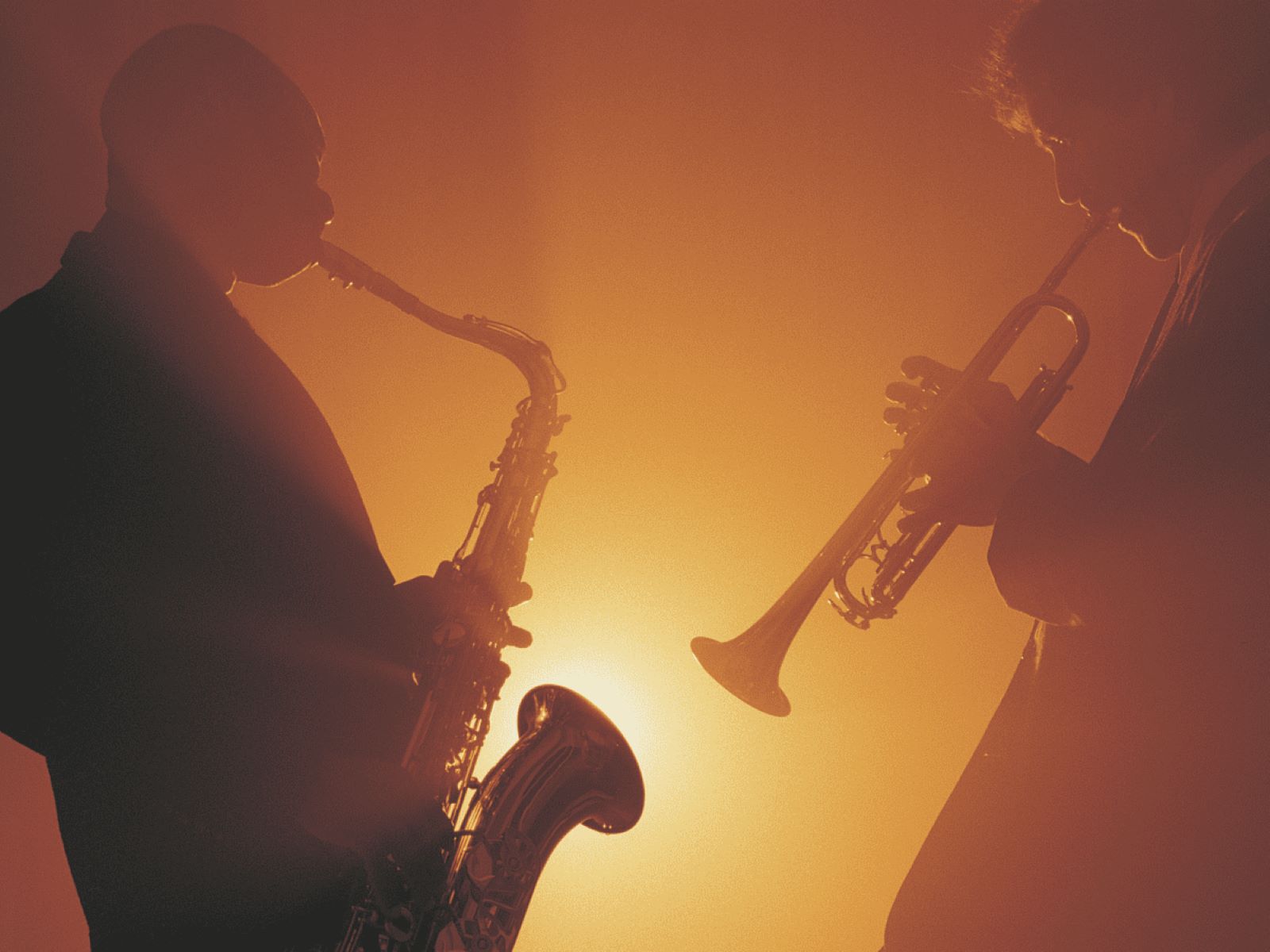Home>Production & Technology>Musician>What Is A Jazz Musician
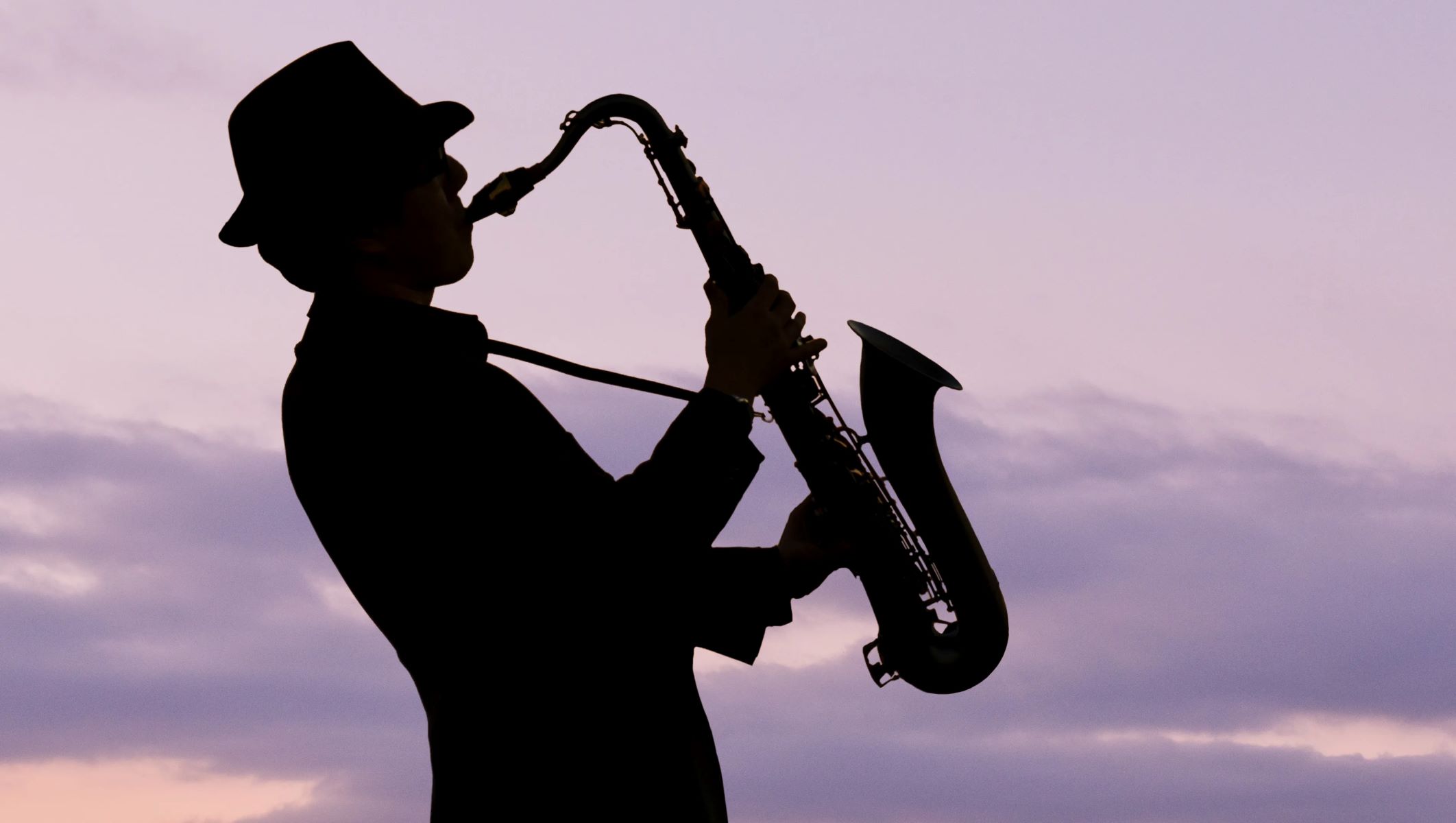

Musician
What Is A Jazz Musician
Published: January 28, 2024
Discover the world of jazz musicians and their extraordinary talent. Learn what it takes to become a skilled musician and explore the diverse styles and techniques of these captivating artists.
(Many of the links in this article redirect to a specific reviewed product. Your purchase of these products through affiliate links helps to generate commission for AudioLover.com, at no extra cost. Learn more)
Table of Contents
Introduction
Jazz music is a genre that has captivated music enthusiasts for decades with its complex harmonies, syncopated rhythms, and expressive improvisation. At the heart of this captivating musical style are the jazz musicians, the skilled artists who bring the music to life and create the unique soundscapes that define the genre.
Being a jazz musician is more than just playing an instrument; it is about understanding the cultural and historical roots of jazz and being able to express oneself through the music. Jazz musicians are not just performers, but also storytellers, using their instruments to convey emotions and narratives.
In this article, we will explore the world of jazz musicians, their defining characteristics, the skills required to excel in this genre, and the importance of improvisation in jazz. We will also delve into the history of jazz music and highlight some notable jazz musicians who have left a lasting impact on the genre. By the end, you will have a deeper appreciation for jazz musicians and the rich musical tapestry they create.
Definition of a Jazz Musician
A jazz musician is an artist who specializes in performing and creating jazz music. They are skilled instrumentalists or vocalists who have a deep understanding and appreciation for the genre’s unique characteristics. Jazz musicians are not limited to a specific instrument; they can excel in playing the trumpet, saxophone, piano, guitar, drums, or any other instrument commonly found in jazz ensembles.
What sets jazz musicians apart is their ability to interpret and express themselves within the context of jazz music. They are masters of improvisation, able to create melodies and solos on the spot, making each performance unique and captivating. Jazz musicians possess a strong sense of musicality, often experimenting with harmonies, rhythms, and phrasing to push the boundaries of traditional musical conventions.
A jazz musician is not merely a technician; they are artists who infuse their own personality and emotions into their performances. They understand the importance of conveying feelings and stories through their music, often drawing from personal experiences and inspirations. This ability to connect with the listeners on an emotional level is one of the defining traits of a jazz musician.
Furthermore, a jazz musician is also a collaborator. They thrive in ensemble settings, whether it be a small combo or a big band, working together with other musicians to create a cohesive and dynamic sound. Jazz musicians are skilled at listening and responding to their fellow musicians, engaging in musical conversations and building off each other’s ideas.
Overall, a jazz musician is a versatile and innovative artist who possesses a deep understanding of the genre’s traditions and conventions while also pushing the boundaries of musical expression. They are constantly evolving and adapting, seeking new ways to interpret and reinvent jazz music for future generations to enjoy.
Characteristics of a Jazz Musician
Jazz musicians possess a unique set of characteristics that contribute to their mastery of the genre. These traits not only shape their individual style but also define the overall sound and spirit of jazz music. Here are some key characteristics of a jazz musician:
- Creativity: Jazz musicians are known for their boundless creativity. They have the ability to think outside the box, experimenting with different melodies, harmonies, and rhythms. Their creativity allows them to bring fresh and innovative ideas to their performances, keeping the music alive and captivating.
- Adaptability: Jazz is an ever-evolving genre, and jazz musicians need to be adaptable to thrive in this dynamic landscape. They are open to exploring new styles, incorporating influences from various genres, and embracing different musical approaches. This adaptability allows jazz musicians to stay relevant and continuously push the boundaries of the genre.
- Technical proficiency: Jazz music requires a high level of technical proficiency and musicianship. Jazz musicians must have a solid foundation in music theory, be adept at reading sheet music, and possess advanced instrumental or vocal skills. This technical mastery allows them to navigate complex chord progressions, execute intricate improvisations, and maintain a high level of precision in their performances.
- Swing and groove: Central to jazz music is the concept of swing and groove. Jazz musicians have a deep understanding of rhythmic intricacies and the ability to create a sense of swing, which adds a unique energy and feel to their performances. They have a natural sense of timing and can effortlessly syncopate rhythms, imparting a vibrant and infectious groove to the music.
- Expressiveness: Jazz musicians are incredibly expressive in their playing. They have the ability to convey a wide range of emotions through their music, using subtle nuances and dynamics to paint vivid musical landscapes. Their instrument becomes an extension of their voice, allowing them to tell stories and evoke powerful emotions that resonate with listeners.
- Collaboration: Collaboration is a fundamental aspect of jazz music, and jazz musicians thrive in ensemble settings. They possess excellent communication and listening skills, allowing them to interact and engage with other musicians on stage. Through their collaboration, they create musical conversations, building on each other’s ideas and creating a rich and cohesive sound.
These characteristics collectively contribute to the magic and allure of jazz music. Jazz musicians are not only skilled performers but also artistic innovators who create a captivating musical experience for both themselves and their audiences.
Musical Skills Required
Being a jazz musician requires a high level of musical skill and proficiency. These skills encompass technical abilities, theoretical knowledge, and a deep understanding of jazz conventions. Here are some of the essential musical skills required to excel as a jazz musician:
- Instrument Proficiency: Jazz musicians must be highly skilled on their chosen instrument. Whether it’s a saxophone, trumpet, piano, or any other instrument, they must have a strong command of the instrument’s technique, including proper fingering, breath control, or hand coordination. Mastery of their instrument allows jazz musicians to navigate complex musical passages and execute intricate improvisations.
- Music Theory: A solid foundation in music theory is crucial for jazz musicians. They need to understand chord structures, scales, modes, and harmonic progressions. This knowledge enables them to interpret and interpret the intricate harmonies found in jazz music, as well as providing a framework for creating improvisations and compositions.
- Ear Training: Jazz musicians rely heavily on their ability to listen and respond in the moment. Ear training is essential for identifying chord progressions, melodic lines, and rhythms by ear. This skill allows jazz musicians to improvise and interact with other musicians in real-time, creating spontaneous and cohesive musical conversations.
- Improvisation: Improvisation is at the heart of jazz music, and it requires a unique set of skills. Jazz musicians must have a strong melodic sensibility, the ability to create interesting and coherent improvised solos, and the knowledge of how to navigate chord changes. Developing improvisational skills involves years of practice, studying the works of jazz masters, and cultivating a deep understanding of the genre’s improvisational language.
- Rhythm and Timing: In jazz, rhythm is king. Jazz musicians need to have an impeccable sense of timing and rhythm to create the signature swing and groove of the genre. They must be able to play off-beat rhythms, syncopate, and maintain a steady pulse. A strong rhythmic foundation allows jazz musicians to create a compelling and infectious feel in their performances.
- Transcribing and Arranging: Jazz musicians often study and transcribe the works of jazz legends to gain insights into their improvisational techniques and style. Transcribing helps develop a deep understanding of the language and vocabulary of jazz. Additionally, jazz musicians may also arrange music, adapting existing compositions or creating new arrangements for ensemble performances.
These skills are the building blocks for becoming a proficient jazz musician. While innate talent and creativity play a role, the development of these skills through dedicated practice and study is crucial for aspiring jazz musicians. These skills form the foundation on which jazz musicians can explore, innovate, and create the distinct soundscapes that define the genre.
Improvisation in Jazz
One of the defining characteristics of jazz music is improvisation. Improvisation is the ability to create and perform music in the moment, spontaneously composing melodies and solos within the framework of a given song or chord progression. It is a skill that sets jazz musicians apart and allows them to express their unique musical voice.
Improvisation in jazz is a dynamic and interactive process. It involves the immediate response to the musical ideas and actions of fellow musicians, creating a musical dialogue and conversation on stage. Jazz musicians draw from their musical knowledge, technical skills, and intuition to craft melodies and solos that reflect their individuality and the essence of the music being performed.
At the heart of improvisation in jazz is the concept of “playing changes.” This term refers to the ability to navigate the chord changes of a song or a specific progression. Jazz musicians utilize their knowledge of scales, arpeggios, and chord tones to create melodic lines that fit harmonically and melodically within the context of the composition. This skill allows for seamless transitions between chords and the creation of improvised melodies that interact with the underlying harmony.
Improvisation in jazz is deeply rooted in tradition while also encouraging innovation. Jazz musicians study the history of the genre and the works of influential musicians who have come before them. They learn and internalize the established vocabulary and techniques of jazz improvisation, such as bebop, modal playing, or free jazz. By understanding these traditions, they can then expand upon them, adding their own creative twists and pushing the boundaries of what is considered possible in improvisation.
Improvisation also plays a central role in jazz ensemble performances. It allows musicians to engage in musical conversations, trading musical ideas and building upon each other’s phrases. This interaction creates a sense of spontaneity and excitement, as the musicians respond and react to the ever-evolving musical landscape being created collectively.
Developing improvisational skills in jazz requires years of practice, experimentation, and listening. Jazz musicians continuously refine their ability to create meaningful and compelling improvisations by transcribing and studying the solos of jazz masters, practicing over different chord progressions, and seeking out opportunities to perform with other musicians.
Improvisation is the heart and soul of jazz music, allowing musicians to express themselves fully and create unique musical moments. It is a constant exploration and journey of self-expression, where each performance becomes a new opportunity to create something extraordinary.
Understanding and Appreciating Jazz
Jazz is a rich and complex genre of music that often requires a deeper level of understanding and appreciation to fully grasp its beauty and significance. Here are some key aspects to consider when seeking to understand and appreciate jazz:
Historical Context: Jazz emerged in the late 19th and early 20th centuries, primarily in African American communities, with roots in African music traditions, blues, and ragtime. Understanding the historical and cultural context in which jazz developed can provide valuable insights into the genre’s evolution and its significance in American history.
Listening Skills: Active listening is crucial to understanding and appreciating jazz. By honing your listening skills, you can identify the intricate melodies, harmonies, and rhythms that make up jazz compositions. Paying attention to instrumental techniques, improvisations, and the interactions between musicians can enhance your enjoyment and comprehension of the music.
Styles and Subgenres: Jazz encompasses a wide range of styles and subgenres, each with its own distinct characteristics. Familiarize yourself with different jazz styles, such as swing, bebop, cool jazz, fusion, and Latin jazz, among others. Understanding the nuances of each style can deepen your appreciation for the diversity and innovation within jazz music.
Improvisation: Improvisation is a fundamental element of jazz. Appreciating the skill and artistry involved in creating spontaneous and intricate melodic lines can enhance your understanding of jazz musicians’ abilities and the depth of their musical expression. Pay attention to how musicians interact and respond to one another during improvisational passages, as this showcases their musical communication and creativity.
Understanding Harmonic Structures: Jazz often incorporates complex harmonic progressions and chord changes, which can be challenging to grasp initially. Familiarize yourself with common chord progressions and the role of each instrument in supporting and embellishing these progressions. This knowledge will help you appreciate the sophistication and depth of jazz compositions.
Exploring Jazz Legends: The contributions of legendary jazz musicians cannot be overstated. Take the time to listen to and study the works of jazz icons such as Louis Armstrong, Duke Ellington, Ella Fitzgerald, Miles Davis, John Coltrane, and others. Exploring their discographies and understanding their impact on the development of jazz can deepen your appreciation for the genre.
Live Performances: Nothing compares to experiencing jazz live. Attending concerts, jazz festivals, and jam sessions provides a unique opportunity to witness the energy and spontaneity of jazz music. Observing the interaction between musicians and witnessing the improvisational magic happening in real-time can deepen your connection to the music.
Continued Learning and Exploration: Jazz is an ever-evolving genre with a vast catalog of recordings and a constant influx of new talent. Cultivate a curious mindset and continue to explore new artists, albums, and jazz eras. Attend workshops, read books, and engage with jazz communities to expand your understanding and appreciation of this dynamic and influential genre.
By actively engaging with jazz music, studying its history, and immersing yourself in its sounds, you can develop a deeper understanding and appreciation for this remarkable genre, unlocking a world of musical exploration and enjoyment.
Notable Jazz Musicians throughout History
Jazz has given rise to numerous iconic musicians whose contributions have shaped the genre and left an indelible mark on the history of music. From pioneers to modern innovators, here are some notable jazz musicians who have made significant contributions throughout history:
- Louis Armstrong: Known as the “Father of Jazz,” Louis Armstrong revolutionized the art of jazz trumpet playing and brought it to the forefront of popular music. His virtuosic playing, unique vocal style, and infectious personality influenced generations of jazz musicians.
- Duke Ellington: Composer, pianist, and bandleader Duke Ellington was a true visionary in jazz. He created an extensive repertoire of jazz compositions and his orchestra, The Duke Ellington Orchestra, became renowned for its sophisticated sound and intricate arrangements.
- Ella Fitzgerald: Ella Fitzgerald, often referred to as the “First Lady of Song,” was a legendary jazz vocalist known for her incredible vocal range, impeccable intonation, and scat singing abilities. Her unparalleled artistry made her one of the most influential jazz singers of all time.
- Miles Davis: Miles Davis was an iconic jazz trumpeter and bandleader who continually pushed the boundaries of the genre. He was at the forefront of various jazz movements, such as bebop, cool jazz, and jazz fusion, constantly reinventing his sound and staying ahead of the curve.
- John Coltrane: John Coltrane was a trailblazing saxophonist and composer who brought a highly innovative and spiritual approach to jazz. He explored complex harmonies, modal playing, and extended improvisations, leaving a lasting impact on the avant-garde and free jazz movements.
- Billie Holiday: Billie Holiday was a groundbreaking jazz vocalist whose emotive and unique voice conveyed deep emotional intensity. Her interpretive abilities and personal storytelling elevated jazz singing to new heights, making her one of the greatest jazz vocalists of all time.
- Charlie Parker: Charlie Parker, also known as “Bird,” was a virtuosic saxophonist and composer who played a pivotal role in the development of bebop. His lightning-fast improvisations, melodic brilliance, and rhythmic innovations forever transformed the course of jazz history.
- Thelonious Monk: Thelonious Monk was an innovative pianist and composer who pushed the boundaries of jazz harmonies and structures. His eccentric playing style and unique compositions challenged conventional norms, leaving a lasting impact on the post-bop and avant-garde jazz movements.
- Sarah Vaughan: Sarah Vaughan, known as “Sassy” or “The Divine One,” possessed a voice of unparalleled beauty and versatility. Her vocal range and ability to effortlessly navigate complex melodic lines earned her a place amongst the greatest jazz vocalists of all time.
- Wynton Marsalis: Wynton Marsalis is a virtuoso trumpeter, composer, and bandleader who has played a crucial role in the resurgence of traditional jazz and the preservation of its legacy. He has been instrumental in exposing jazz to new audiences while maintaining a strong commitment to the genre’s traditions.
While this list only scratches the surface, the contributions of these notable jazz musicians have had a profound impact on the genre and continue to inspire musicians and audiences alike. Their creativity, innovation, and artistry have helped shape jazz into the rich and diverse musical form it is today.
Influences of Jazz Music
Jazz music has had a profound influence on the development of various musical genres and cultural movements. From the early days of its inception to the present, jazz has left an indelible mark on the music landscape. Here are some notable influences of jazz music:
- Popular Music: Jazz has had a significant impact on popular music. Elements of jazz, such as swing rhythms, improvisation, and syncopation, have influenced styles like blues, rock and roll, funk, and R&B. The infusion of jazz elements into these genres has helped shape their distinctive sounds and contributed to the evolution of popular music as a whole.
- Classical Music: Jazz has also influenced classical music. Composers such as George Gershwin, Claude Bolling, and Leonard Bernstein incorporated jazz elements into their compositions, blurring the lines between jazz and classical music. The infusion of jazz harmonies, rhythms, and improvisation has added a new dimension to classical music repertoire.
- Latin Music: Jazz has had a significant impact on Latin music genres, such as bossa nova, salsa, and Latin jazz. Musicians like Antonio Carlos Jobim and Tito Puente incorporated jazz harmonies and improvisational techniques into their music, resulting in a fusion of styles that added depth and complexity to Latin music rhythms and melodies.
- Fusion and Jazz-Rock: In the 1960s and 1970s, jazz fusion and jazz-rock emerged as genres blending jazz with elements of rock, funk, and electronic music. Artists like Miles Davis, Weather Report, and Herbie Hancock experimented with incorporating electric instruments and synthesizers into jazz, leading to a fusion of styles and the creation of a new musical landscape.
- Improvisation in Music: Jazz’s emphasis on improvisation has influenced musicians across different genres. The concept of spontaneously creating music within a given framework has been embraced by artists in genres such as jam bands, progressive rock, and even certain forms of electronic music, expanding the boundaries of improvisation beyond jazz.
- Cultural and Social Impact: Jazz has long been associated with cultural and social movements. During the early 20th century, jazz became a symbol of African American cultural expression, providing a platform for racial integration and social commentary. Jazz music continues to embody the spirit of diversity, innovation, and freedom of expression.
The influences of jazz music extend far beyond the boundaries of the genre itself. Its impact on popular music, classical music, Latin music, and even cultural and social movements exemplify its ability to shape and transform the musical landscape. As jazz continues to evolve, it will undoubtedly leave an enduring legacy and continue to inspire new generations of musicians and music lovers.
Conclusion
Jazz music and its musicians hold a special place in the musical world. Their artistry, creativity, and dedication have shaped the genre and influenced countless musicians and musical styles. Jazz musicians possess a unique set of skills, including technical proficiency, improvisation, and a deep understanding of musical nuances. They are storytellers, using their instruments to convey emotions, narratives, and cultural experiences.
Understanding and appreciating jazz requires active listening, exploration, and a grasp of its historical and cultural context. By immersing ourselves in jazz music, studying the works of jazz legends, and attending live performances, we can gain a deeper appreciation and understanding of the genre’s complexities and beauty.
The influences of jazz extend beyond its own borders, seeping into various musical genres and cultural movements. Jazz has shaped popular music, classical music, Latin music, and has even redefined the concept of improvisation in music. Its impact is woven into the fabric of the musical world, enriching and inspiring countless musicians and audiences.
As we continue to explore and embrace jazz, we honor the legacy of its notable musicians who have contributed to its evolution. From the pioneers like Louis Armstrong and Duke Ellington to the modern masters like Wynton Marsalis and Esperanza Spalding, their contributions have left an indelible mark on the genre and continue to influence generations of musicians to come.
In conclusion, jazz musicians are the torchbearers of a storied musical tradition. Their exceptional talent, dedication, and passion for their craft shine through in every note they play. Through their improvisation, musical skills, and collaborative spirit, they create captivating and timeless music that resonates with audiences around the world. Jazz musicians are the living embodiment of the artistry and innovation that make the genre so special, and their contributions will continue to shape the musical landscape for years to come.

